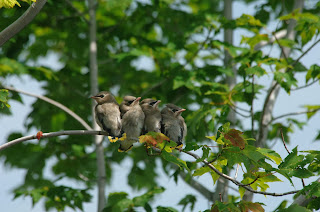“Lyin’ on my back in a cornfield back in Kansas
I think I might’a had my first original thought"
(Chely Wright, “Your Woman Misses her Man”)
Do you find yourself reading something or hearing someone
say something or do something and comparing yourself to that person unfavorably?
 |
| Photo Credit Newlin Keen |
I’ve spent my life comparing myself to other people and
coming up short. My shrink said, the other day, “How do you know what you see
is the truth?” Good question.
I envy bloggers who write spiritually deep things. I
envy people who are doing what I want to do and are making money at it and are
published. I envy those who every day can come up with an original thought that
inspires others to share it with still others.
Of course, it’s not true that I have never had an original
thought. I have original thoughts about scripture all the time. Last week I had
an original thought about the dishonest steward or accountant in Luke’s gospel.
A man had an accountant, a steward, and some people came to the man and said
the accountant was dishonest. So the man demanded an accounting from the
steward before he fired him. So the accountant thought, how can I make sure I
can still make a living after I’ve been fired? So he called the man’s debtors
and made deals with them – you owe this? Pay only that. – ensuring that they
would remember him and help him out when he was fired.
My original thought was that Jesus is thinking of himself
when he talks about the steward who slashes everyone’s bills before collecting
on them. Only Jesus outdoes the steward. He cancels all our debts. Today, I
read someone else musing on the same possibility. That doesn’t make my thought
unoriginal. It just makes it validated.
I also have this blog, where almost everything I post here
is original, and if it isn’t, what I do with it is my original thought. And I
realized today that a lot of what I am envying is actually attributed to the
greats: mystics like Hildegard of Bingen, scientists like Albert Einstein,
presidents like FDR, women activists like Helen Keller.
So, now I know intellectually that comparing myself to other
people who seem to me to be more wonderful than I am, more popular, smarter,
more inspiring, and more original, is a waste of time and emotion. It won’t
stop me from doing it. I’ve been doing it for too long. However, it will bring me up
short every time I catch myself belittling myself in comparison to someone
else, and make me wonder why. Because I realized today there is an integral
link to my envy, for that is what it is, and the things I wish I could or would
do, and there is no reason on God’s earth why I shouldn’t do those things I
want to be doing. In fact, in a very real sense, I am doing a lot of those
things, and on my way to doing others. I’m just not yet adept at recognizing my
own accomplishments.
The antidote, then, to the downward spiral into
self-denigration is this: What have you already accomplished? List them. Thank
yourself for them. Even if they are very small.
 |
| Photo credit Lois Keen |
I want to be part of a spiritual community of practice that
companions others who need someone to walk along with them. Today I envied a
community of Episcopalians that are doing that in another state. Then I
realized I’m one step, no wait, two, three, more steps already on the way to
that kind of community. I start hospice chaplaincy next week in a tiny way, one day a week, and it is a
step, an accomplishment. I’m trained to be a consultant for congregations in
transition and as opportunities open up I will companion them. I have been
asked to be chaplain to a community of intentional prayer practice. I have a
full schedule of supplying for worship on Sundays.
Each day, each week, I take some small step. But, because I can't not put myself down for not having the whole plan together yet, I said to my shrink, “But the writing…aarrgggghhh...overwhelming. I don't think it will ever happen”
And yet, I write something, no matter how little, every day, not always for the
literary value but because I cannot, not write. And as I thought about this, I said to him, "If I do this every day, one day what I really want to share with the world will find its way onto the paper and I'll be off and running."
Next time I
compare myself and my habitual reaction is to look down on myself, as I envy
the other, I will look over this list and then add to it what I have next done
to become a practitioner of intentional companioning.
And as to spiritual practice – I commend this practice of
noticing what you have done, and honoring yourself for it, and thanking yourself for it. And
if you are a God person, give thanks to God.
 |
| Photo credit Newlin Keen |




